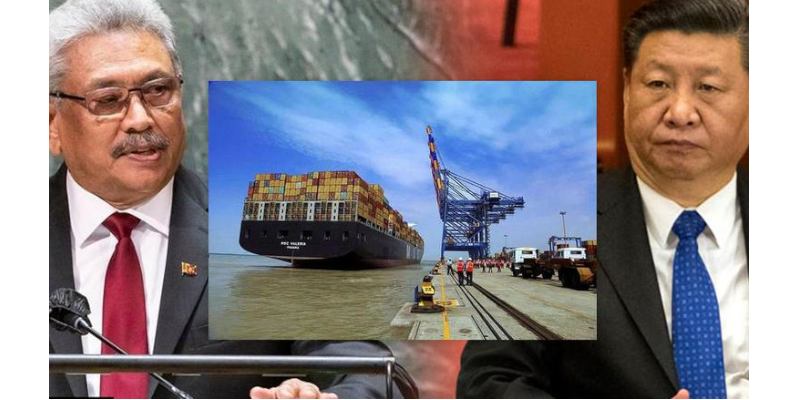Dharamshala, 10th April: China is substantially to blame for Sri Lanka’s current position along with the island nation’s rulers’ budgetary profligacy, which is presently wracked by economic and political turmoil. Sri Lanka has received huge loans from China, which it has used to construct an airport and a seaport. The airport, Mattala Rajapaksa International airport, which has been labeled the world’s least used airport, costs the country money. The port, Hambantota Port, on the other hand, was declared economically unviable in 2016. Both the port and the airport were constructed with high-interest loans from the Chinese EXIM bank.
The port of Hambantota in Sri Lanka is a famous example of a white elephant project. The ports is strategically positioned, yet commercially unsustainable due to a lack of traffic. Meanwhile, the Matala airport is occasionally used to store paddy.
The Chinese-owned Hambantota Port, which was previously owned by Sri Lankans, is located eighteen kilometers from the airport. It is Sri Lanka’s second-largest port, being opened on November 18, 2010. In 2016, the company recorded an operating profit of US$1.81 million, however, it was deemed unprofitable. As debt repayment became more onerous, the newly-elected administration chose to sell an 80 percent ownership in the port to raise foreign cash in order to pay off maturing sovereign loans that had nothing to do with the port. China Merchants Port was picked out of the two bidders. A deal was signed in July 2017 where CMPort was only given 70% ownership, at the same time, CMPort was granted a 99-year lease on the port.
Instead of making Sri Lanka more resilient as a result of Chinese loans, Beijing’s client states have practically crumbled. Sri Lanka is currently experiencing protests as a result of rising inflation; all debts are priced in US dollars, which protects China from exchange rate swings but raises the cost of hard cash for borrowers. The Lankan Rupee fell in a couple of days in Sri Lanka, substantially boosting the cost of hard money.
Picture Credit: 4kdesktopbackground.com







Leave a Reply